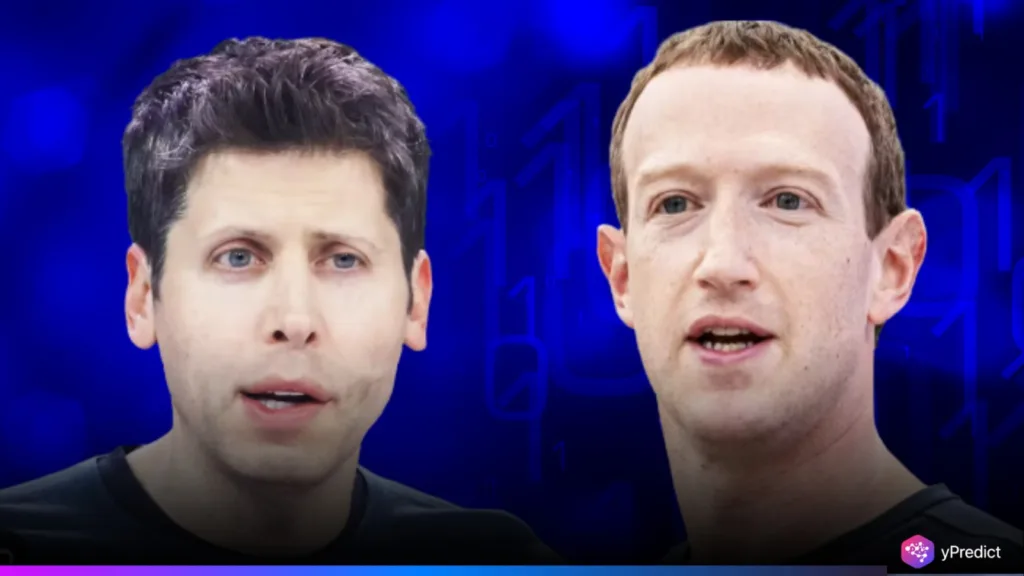
OpenAI has adjusted its pay strategy in response to an aggressive talent raid by Meta, escalating the fierce AI hiring war of 2025. After losing several top-tier AI researchers to Meta’s lucrative offers, OpenAI is revamping its compensation structure with substantial salary increases, expanded stock options, and targeted retention bonuses.
This move aims to safeguard its talent pool and preserve its leadership in artificial intelligence innovation. The ongoing OpenAI vs Meta AI talent rivalry highlights the skyrocketing value of elite AI expertise, as both companies compete to shape the future of AI-driven technologies, research, and global market dominance.
OpenAI Responds to Meta’s Aggressive Talent Raid
According to The Wired, a wave of senior-level defections to Meta triggered an urgent internal response from OpenAI leadership. Executives are now scrambling to retain top AI researchers amid heightened competition and growing pressure from rival tech firms. Meta recently recruited at least eight notable OpenAI scientists, including Trapit Bansal, a key contributor to the O1 reasoning model. Other prominent hires include Lucas Beyer, Alexander Kolesnikov, and Xiaohua Zhai, all recognised for their work in cutting-edge AI research.
Reacting to these developments, OpenAI Chief Research Officer Mark Chen sent a strongly worded internal message addressing the recent staff departures. He described the situation as deeply personal and emotionally taxing, comparing it to a home invasion. Chen emphasised that OpenAI’s leadership, including himself, CEO Sam Altman, and other executives, have actively engaged with employees considering outside offers.
Their efforts include reviewing and enhancing compensation structures and exploring innovative methods to acknowledge exceptional contributions.
The internal memo showed OpenAI had anticipated Meta’s aggressive hiring push, as Meta continues expanding its AI Superintelligence team. Reports indicate that CEO Mark Zuckerberg has been personally involved in recruitment, targeting top talent with substantial compensation offers. While Meta’s leadership disputed the scale of these reported figures, some offers allegedly exceeded $100 million in total value. Sources close to OpenAI confirmed that a few candidates did receive highly lucrative packages from Meta’s AI recruiting efforts.
Retention, Culture, and Strategy in the Face of External Pressure
In response to rising talent pressure, OpenAI increased individual outreach and began reassessing pay and recognition systems for staff retention. The company emphasised fairness, equity, and alignment with core values rather than relying solely on financial incentives to retain employees. Senior OpenAI researchers sent internal messages urging colleagues to resist aggressive recruitment, warning Meta could target staff during OpenAI’s break. They also offered peer support and reinforced unity, aiming to maintain morale and cohesion amid growing external pressures.
Amid these tensions, Chen reminded staff to remain focused on OpenAI’s foundational mission of advancing artificial general intelligence (AGI). He cautioned against getting distracted by the competitive tempo of product launches or media hype. He said,
We need to remain focused on the real prize of finding ways to compute (a lot more supercomputers are coming online later this year) into intelligence. This is the main quest, and it’s important to remember that skirmishes with Meta are the side quest.
Echoing this sentiment, Altman expressed strong support for Chen’s leadership, crediting his principled approach during a challenging time. Internally, the company has slowed certain initiatives to provide space for teams to refocus and decompress, part of a broader strategy that prioritises employee wellbeing alongside innovation.
The Human Frontline in the AI Arms Race
As the AI talent race shifts from technology to talent, Meta’s aggressive hiring has intensified competition. In response, OpenAI is reinforcing its edge, mission clarity, team cohesion, and a people-first culture. Altman noted that top talent remains committed not for money, but for shared purpose. To support this, OpenAI is introducing holistic retention strategies, including clearer career paths, mental health support, and tailored recognition.
The message is clear: although the AI race depends on infrastructure and innovation, people ultimately determine long-term success in the field. By choosing transparency, fairness, and human-centred leadership, OpenAI positions itself as more than a technology leader. It aims to be a workplace that values integrity and long-term vision over short-term competitive victories and opportunistic gains.





